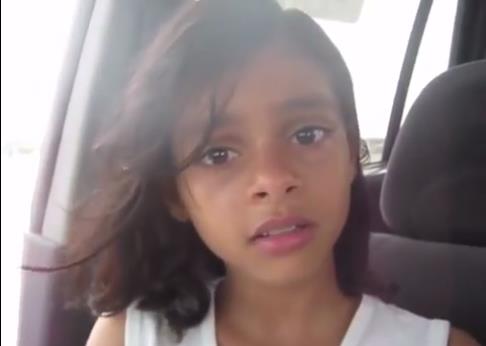“I’m better off dead” 11 year-old Nada al-Ahdal on child marriage

Your support helps us to tell the story
From reproductive rights to climate change to Big Tech, The Independent is on the ground when the story is developing. Whether it's investigating the financials of Elon Musk's pro-Trump PAC or producing our latest documentary, 'The A Word', which shines a light on the American women fighting for reproductive rights, we know how important it is to parse out the facts from the messaging.
At such a critical moment in US history, we need reporters on the ground. Your donation allows us to keep sending journalists to speak to both sides of the story.
The Independent is trusted by Americans across the entire political spectrum. And unlike many other quality news outlets, we choose not to lock Americans out of our reporting and analysis with paywalls. We believe quality journalism should be available to everyone, paid for by those who can afford it.
Your support makes all the difference.A video made by 11 year-old Yemeni girl Nada Al-Adhal speaking about child marriage has gone viral.
After it was translated and posted on YouTube, over seven million have watched Al-Adhal petition against the widespread practice of forced child marriages which led her to flee her family, and which, according to her powerful appeal, leads to the suicides of children all over Yemen.
“Go ahead and marry me off. I’ll kill myself, just like that”, she says in a message to her parents, “I’m better off dead”.
Twenty years after the Convention on the Rights of the Child passed through the UN, envisioning a future in which all children have the right to be safeguarded against violence, exploitation and abuse, Al-Adhal’s campaign against child marriage is only one example of children around the world speaking out against continuing violations against their human rights.
In 2009 Manan Ansari, a young child labour activist from Jharkhand, spoke at the International Labour Conference about his experiences as a child working in the mica mines of the region, and his work to free children from the dangers of the labour and give them access to school education.
In 2001, 12-year-old Nkosi Johnson’s heart-wrenching campaign for better understanding and care for HIV/AIDS sufferers helped change policy about HIV-infected children getting into schools, and opened a care centre for infected mothers and their children.
Last October Pakistani activist and Nobel Peace Prize nominee Malala Yousafzai made world news when she was shot by the Taliban for championing education for girls. Since her recovery she has been hailed as a hero and an inspiration for her perseverance, telling world leaders in her speech at the United Nations on her 16th birthday; “they thought that the bullet would silence us. But they failed”.
Join our commenting forum
Join thought-provoking conversations, follow other Independent readers and see their replies
Comments